Concussion Settlement Amounts – What can I expect?

In a personal injury case in New Jersey, the amount of a concussion settlement can vary greatly depending on the severity of the concussion and its long-term effects.
For example, a mild concussion may result in a settlement of around $20,000 while more serious cases could receive settlements as high as $500,000 or more. The exact amount will depend on factors such as medical expenses, lost wages due to missed time at work, and other economic damages associated with the injury.
Additionally, if there were any non-economic damages such as pain and suffering or emotional distress associated with the injury these can also be taken into consideration when determining an appropriate settlement amount. Ultimately it is important to speak with an experienced attorney who can help you understand your rights and options when it comes to pursuing a concussion settlement.
In some cases, insurance companies may offer a lump sum as part of the settlement agreement but there is also the possibility that an annuity could be offered which would provide you with regular payments for a set period. Your attorney can help you understand your options and make sure that any settlement amount offered is fair and just based on the circumstances surrounding your case.
It’s important to remember that even if your case does not go to trial, working with an experienced personal injury lawyer can ensure that you receive full compensation for all costs associated with your injury. In addition to monetary damages, it’s possible to pursue non-economic damages such as pain and suffering or emotional distress, as well.
Ultimately, it’s important to understand your rights and options when it comes to pursuing a concussion settlement in New Jersey so that you can receive fair and just compensation for the effects of your injury. Working with an experienced attorney is the best way to ensure that your rights are protected and that you receive full compensation for any costs associated with your injury.
Why do concussion settlement amounts vary so much?
Compensation awards in personal injury cases involving concussions can vary significantly in New Jersey because the nature and extent of the injury can differ from case to case. The severity of a concussion can range from minor, with little or no long-term effects, to severe, resulting in life-altering consequences. Depending on the individual circumstances and evidence presented one person can receive a much higher amount than another in similar types of cases.
In addition to the variability of concussions, other factors that may influence a compensation award involve proving negligence or fault, establishing damages such as medical bills and lost wages, demonstrating the injured party’s inability to perform certain tasks or work after suffering a concussion, and assessing any pain and suffering endured. In some instances, a claim may involve multiple defendants and insurers which can further complicate the case.
Given the complexity and variations of personal injury claims involving concussions, it is important to have an experienced attorney on your side to ensure that any compensation awarded is fair for your situation. An attorney will review evidence, collect documents and witness statements, negotiate with insurance companies, represent you in court if necessary, and ultimately strive to get you the maximum amount possible.
It’s important to understand that no two cases are exactly alike and that each one will receive individual consideration before a settlement or award is determined. Therefore, the amount of compensation awarded in a specific concussion-related personal injury claim can vary greatly from one case to another in New Jersey.
What evidence is needed in a personal injury case for a concussion?
To sue for a concussion in New Jersey, the plaintiff must be able to provide evidence of negligence on behalf of the defendant. This might include proof that the defendant violated a safety rule or behaved recklessly, thereby causing injury to the plaintiff.
The plaintiff must also show that their injuries were caused by this negligence and not by any other factor. Medical records documenting the plaintiff’s injury and any associated treatment, such as physical therapy or cognitive testing for a concussion, are essential to document the harm suffered.
Additionally, testimony from medical experts may be needed to establish the level of harm suffered by the plaintiff. Furthermore, evidence should also demonstrate that economic losses were suffered by the plaintiff due to their injuries, such as lost wages or medical bills.
Witnesses who were nearby at the time of the accident may also be called upon to testify to corroborate the plaintiff’s version of events. Finally, in some cases, a lawyer may need to track down photographs or video evidence of the incident if available. If a successful case is brought against the defendant, the plaintiff may be entitled to financial compensation for their injuries and associated losses.
What are the symptoms of a concussion injury?
A concussion is a type of traumatic brain injury that causes changes in how the brain functions. It can occur after a bump, blow, or jolt to the head, as well as after a fall or other incident that shakes the brain inside the skull. Concussion symptoms generally last for 7-10 days but can linger for weeks or months.
Common signs and symptoms of a concussion include headaches, dizziness, confusion and difficulty concentrating, feeling off balance or unsteady on your feet, amnesia (memory loss), sensitivity to light and noise, nausea or vomiting, blurry vision, and slurred speech. Some people may also experience delayed reactions and slowed thinking processes; fatigue; problems sleeping; depression; personality changes; as well as changes in their ability to concentrate, remember or pay attention.
It is important to seek medical help if you suspect that you or someone else has a concussion. A medical provider can conduct an assessment and recommend the best course of action for recovery. If you have had a previous concussion, it is especially important to talk with your doctor about any signs or symptoms that may occur after another injury. Early diagnosis and treatment are key to minimizing the long-term effects of this type of head injury.
If left untreated, concussions can lead to serious complications such as post-concussion syndrome, which can cause persistent memory problems, headaches, vertigo, and other symptoms that last for months after the initial injury. In rare cases, uncontrolled bleeding, brain swelling, or even death may occur. It is important to take concussions seriously and seek medical help immediately if a head injury has occurred.
What are the long-term effects that can be caused by a concussion?
The long-term effects of a concussion can vary in severity and duration, depending on the individual. After sustaining a concussion, it is important to recognize the potential long-term effects that may arise.
Cognitive impairment is one of the most common long-term side effects associated with a concussion. Research has shown that individuals who have experienced multiple concussions are more likely to experience cognitive difficulties such as memory problems, difficulty concentrating, and slower thinking speed. These cognitive impairments can interfere with academic performance as well as everyday life activities.
Physical issues can also be experienced after a concussion has taken place. Tension headaches, vertigo, nausea, and balance issues are just some of the physical symptoms that can linger for years after the initial injury. It is important to note that these physical symptoms can be mild or more severe, depending on the individual and the severity of the concussion.
Mood issues are a common long-term effect associated with concussions. Depression and anxiety are two of the most reported mood problems after a head injury has occurred. These symptoms can interfere with everyday activities and relationships, making it difficult for an individual to carry out tasks that were once considered easy.
Finally, sleep disturbances are another long-term effect of a concussion. Insomnia, sleep apnea or disturbed sleeping patterns may occur in someone who has experienced a head injury as part of their recovery process. This can make it difficult to focus on tasks during the day and can lead to further issues such as fatigue, irritability, and difficulty concentrating.
Overall, the long-term effects of a concussion can vary in severity and duration depending on the individual. It is important to be aware of potential long-term effects that may arise after a concussion has occurred to seek appropriate treatment. This can help an individual manage their symptoms more effectively and improve their quality of life.
How do concussions and head injuries occur?
Concussions or head injuries can occur in a variety of ways. In some cases, a person may suffer an injury due to the negligence of another individual or organization. For instance, if someone is playing a contact sport and their opponent does not follow the safety rules, resulting in a head injury, then the injured party may have grounds for legal action. Similarly, if someone slips and falls on a slippery surface due to poorly maintained property owned by another party, they may be able to sue them for medical costs associated with their concussion.
In addition to these scenarios, there are many other situations in which concussions or head injuries can occur that you can sue for. Car accidents often lead to severe injuries such as concussions or head trauma, and if the accident was caused by another party’s negligence, then that individual or organization could be sued for damages. Similarly, some workplace activities can also lead to head injuries if there are inadequate safety protocols in place. In these cases, it may be possible to take legal action against the responsible party.
In any case, where a concussion or head injury has occurred due to someone else’s negligence, it is important to consult with an experienced lawyer. They will be able to assess the situation and advise on whether grounds for a lawsuit exist and what steps should be taken to seek compensation for any medical expenses associated with the injury.
What types of compensation are there for these head injuries?
In a personal injury case in New Jersey for a concussion, victims can be compensated for many different types of damages. This includes both economic and non-economic losses.
Economic losses may include medical expenses (past and future), lost wages due to missed workdays, any out-of-pocket costs associated with the injury, and any property damage that resulted from the incident. Non-economic losses refer to intangible damages such as pain and suffering, emotional distress, disability or disfigurement, loss of enjoyment of life, inability to perform usual activities or hobbies due to the injury, etc.
Victims also may be able to recover punitive damages in certain cases. Punitive damages are reserved for situations where gross negligence or intentional wrongdoing was involved and would be awarded to punish the wrongdoer.
It is important to note that each case is unique and should be evaluated on an individual basis to determine the full amount of compensation available. Consulting with a qualified New Jersey personal injury attorney can help victims recover maximum damages for their injuries. An attorney will also be able to advise them on any other legal options they may have as a result of their accident.
No matter the circumstances of an injury, victims should be aware of their legal rights and should not hesitate to pursue compensation if they believe another party is liable. They may be entitled to significant damages for the losses that resulted from their concussion.
An experienced New Jersey attorney can help them navigate this process and seek out the maximum amount of compensation available. By acting, injured parties may be able to gain the financial justice they need to move forward with their lives.
Why does it matter what type of personal injury claim it is?
The type of personal injury claim you have will determine what types of compensation you can recover. The more severe the injury, the greater the potential for recovery. If your injury is very severe, such as a catastrophic injury, you may be able to recover all types of compensation including medical expenses, lost wages, pain and suffering damages, and punitive damages.
However, if your injury is less severe or temporary, you may only be able to recover limited types of compensation including medical expenses and lost wages. Other types of personal injury claims involve damage caps which limit the amount of total compensation that can be recovered in a case.
These caps vary by state and by case but are generally set at a certain dollar amount based on the severity of the injury and other factors. Depending on the type of claim, damages may be capped at a certain amount for each claim or may be limited to a total cumulative settlement amount for all parties involved in the case.
It is important to understand what types of compensation are available in your personal injury claim and if any damage caps apply so that you can receive an appropriate settlement. An experienced attorney can help guide you through the process and make sure that you get the full compensation that you deserve.
Related Blogs
No Fee Unless
GGL Wins
We've got you covered.
We are available 24/7/365
One of our advisers will contact you.

OFFICIAL PARTNER OF RUTGERS ATHLETICS



Recent GGL Wins
Auto Accident
Mediation award Plaintiff was injured in an intersection motor vehicle collision resulting in neck and lower back fusion surgeries.
$2 Million
Verdict
Workers' Compensation
25-year-old laborer died in an industrial accident while working.
$1.15 Million
Verdict
Construction Accident
Roofer fell off roof causing head trauma resulting in a head injury. Plaintiff was not given fall restraint protection equipment by contractor.







